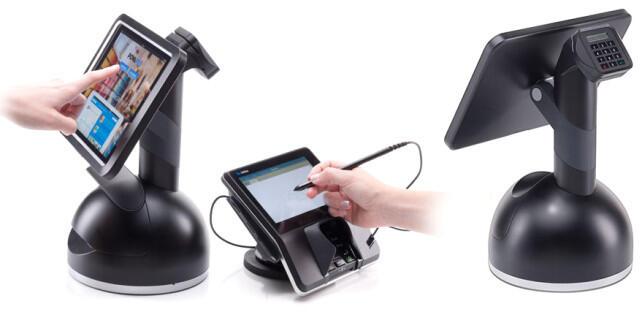High quality global journalism requires investment. Please share this article with others using the link below, do not cut & paste the article. See our Ts&Cs and Copyright Policy for more detail. Email [email protected] to buy additional rights. http://www.ft.com/cms/s/0/b96c54e8-69dc-11e6-a0b1-d87a9fea034f.html#ixzz4IXbIr0e7
A fresh attempt to transform retail payments markets in the UK will be launched this year by a group using technology acquired from Powa Technologies, one of the country’s highest profile start-up failures.
Ben White, a British technology entrepreneur who bought Powa’s assets out of administration with the backing of its US investor, is confident he can succeed where Powa’s founder Dan Wagner failed.
High quality global journalism requires investment. Please share this article with others using the link below, do not cut & paste the article. See our Ts&Cs and Copyright Policy for more detail. Email [email protected] to buy additional rights. http://www.ft.com/cms/s/0/b96c54e8-69dc-11e6-a0b1-d87a9fea034f.html#ixzz4IXbMglQI
The resurrection of the company’s plans in financial technology may not be so easy — Powa’s fall from grace was well publicised, leaving creditors out of pocket and 75 of its UK staff out of a job. It was a blow to London’s wider technology start-up scene, which is tiny compared with US alternatives and threatened by technology hubs in Germany and other parts of Europe.
In an interview at the new venture’s serviced office, Mr White said Powa suffered from unfocused leadership and had been given “too much money”.
But he decided to invest in Powa’s technology after staff told him “there’s so much good here but it needs proper management”.
The serviced offices in central London are a marked come down from Powa’s double-floored Heron Tower premises. Once a rare UK unicorn — a technology start-up valued at $1bn or more — Powa Technologies went into administration in February after Boston-based Wellington Management pulled the plug. The US investment firm had put about $200m of equity and debt funding into the start-up since 2013.
Powa sold ecommerce services and point-of-sale terminals, but its key product was a product called PowaTag, an app that scanned QR codes and detected other triggers to enable easier mobile purchases.
High quality global journalism requires investment. Please share this article with others using the link below, do not cut & paste the article. See our Ts&Cs and Copyright Policy for more detail. Email [email protected] to buy additional rights. http://www.ft.com/cms/s/0/b96c54e8-69dc-11e6-a0b1-d87a9fea034f.html#ixzz4IXbQ4oly
Mr White, who founded Notion Capital, a London-based venture capital firm, bought the PowaTag assets out of the administration in March, with the acquisition paid for by writing off $60m of debts owed to Wellington, which has a stake in the new venture.
Since then, Mr White has quietly built up the company, Actovate, with a focus on selling the technology to other companies so they can embed it in their own apps.
He is reluctant to get into a public argument with Mr Wagner, who he is pursuing for repayment of a loan that Mr White made to Powa in late 2015, when the company was struggling to pay staff and suppliers. Mr White was subsequently a director of Powa for a short time.
However, Mr White said creating a Powa-branded app rather than offering the technology unbranded for other companies to use was a “flawed strategy”.
He declined to name any of the companies he is now trying to sell to, saying “based on what happened before, we wouldn’t dream of saying anything until the contract is inked”.
The company faces significant challenges, not least deciding on a revenue model for the business. Mr White said he was still grappling with that piece of the puzzle, but said the company was unlikely to rely on transaction fees, which he called “a race to the bottom”.
There is also the question of fundraising. Mr White has put about $11m of his own money in so far, but said the business would need to bring in additional investors to help fund the company and get the product to market.
High quality global journalism requires investment. Please share this article with others using the link below, do not cut & paste the article. See our Ts&Cs and Copyright Policy for more detail. Email [email protected] to buy additional rights. http://www.ft.com/cms/s/0/b96c54e8-69dc-11e6-a0b1-d87a9fea034f.html#ixzz4IXbTUWD7
Despite employing 300 people around the world in offices like London’s Heron Tower and New York’s Bank of America Tower, Powa failed to generate meaningful revenue and appeared to exaggerate its client base.
While the company said in press releases that 1,200 brands had “signed up” to use PowaTag, administrators Deloitte found just over 100 ”went on to sign formal contracts of service”.
Mark Weyman, who was previously senior vice-president of product management at Powa and now works at Actovate, said: “Ben’s talked about giving the company some focus, that has been the single biggest change.”
Mr Wagner is also back with a new venture, which is called Rezolve and appears to be based on a similar proposition to PowaTag.
Shortly after Powa went into administration, Deloitte sent a letter to staff warning them not to pass laptops containing the company’s intellectual property to former management.
Mr Wagner did not return a request for comment, but told Business Insider last month: “I have created something entirely new with Rezolve and wouldn’t dream of using IP that didn’t belong to me.”
Source: Financial Times











